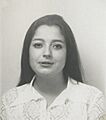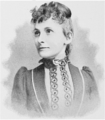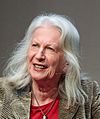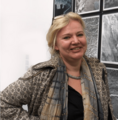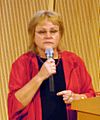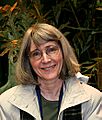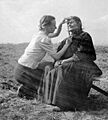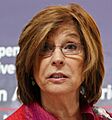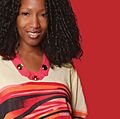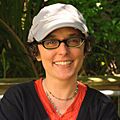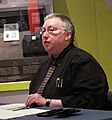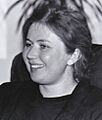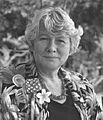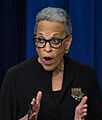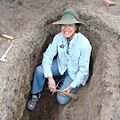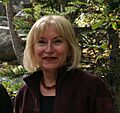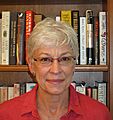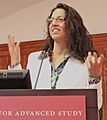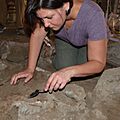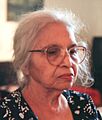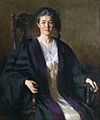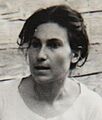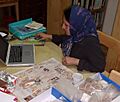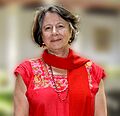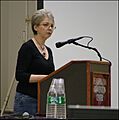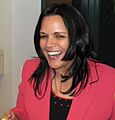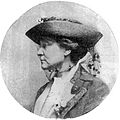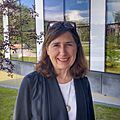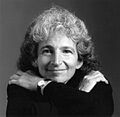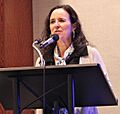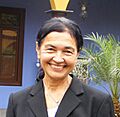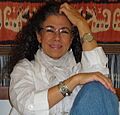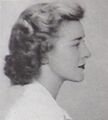Anthropology is the study of humans! It's a huge field that looks at people, their societies, and their cultures across time and around the world. Anthropologists try to understand how humans have lived, how they live now, and what makes different groups of people unique.
There are different types of anthropology:
- Cultural anthropology explores human societies and cultures, looking at things like traditions, beliefs, and social structures.
- Archaeology studies human history by digging up and analyzing artifacts and remains from the past.
- Physical anthropology (also called biological anthropology) looks at human evolution, our physical differences, and how we relate to other primates.
- Linguistic anthropology focuses on how language shapes our lives and cultures.
Many amazing women have made huge contributions to anthropology, helping us learn more about ourselves and our world. Here are just a few of them.
Pioneering Women in Anthropology
Some women broke new ground in anthropology, often at a time when it was harder for women to pursue scientific careers.
Early Explorers and Researchers
- Alexandra David-Néel (1868–1969) was a French-Belgian explorer and writer. She was one of the first Western women to travel to Tibet and spent many years studying Buddhism and Tibetan culture. She wrote many books about her adventures and what she learned.
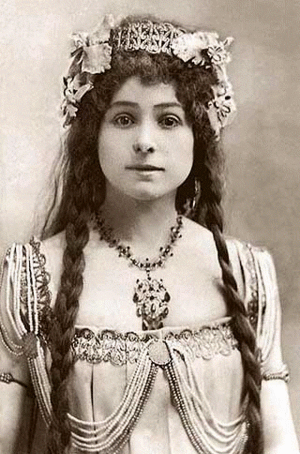
Alexandra David-Néel, a famous explorer and writer.
- Alice Cunningham Fletcher (1838–1923) was an American ethnologist. She spent a lot of time studying Native American cultures, especially the Omaha tribe. She helped record their traditions and worked to protect their rights.
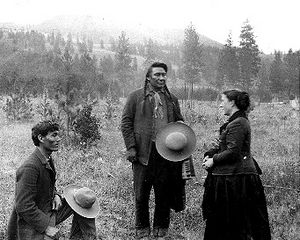
Alice Cunningham Fletcher, who studied Native American cultures.
- Amelia Edwards (1831–1892) was a British novelist and journalist who became a famous Egyptologist. She explored ancient Egyptian sites and helped found the Egypt Exploration Fund to protect and study these important historical places.
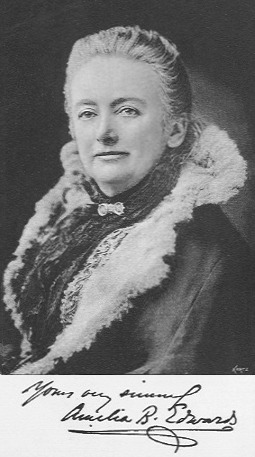
Amelia Edwards, a British Egyptologist.
- Gertrude Bell (1868–1926) was a British writer, traveler, and archaeologist. She explored the Middle East and played a key role in shaping the modern country of Iraq after World War I. She was also a skilled mountaineer.
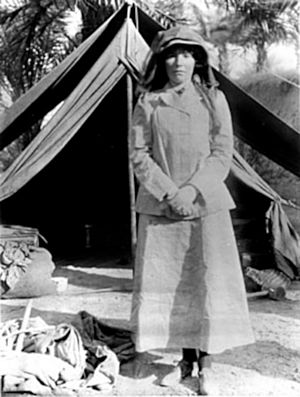
Gertrude Bell in Iraq in 1909.
- Dorothy Garrod (1892–1968) was a British archaeologist. She was the first woman to become a professor at the University of Cambridge. She made important discoveries about early human life in the Middle East, including finding Neanderthal remains.
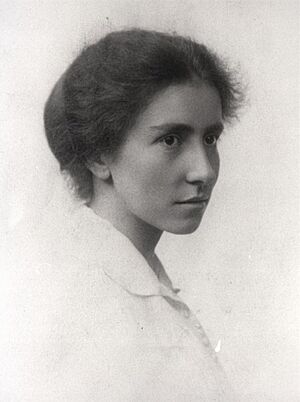
Dorothy Garrod, the first female professor at Cambridge.
Understanding Human Societies
- Margaret Mead (1901–1978) was a very famous American cultural anthropologist. She studied how culture affects personality and gender roles, especially in Samoa and other Pacific islands. Her work helped many people understand that human behavior is shaped by culture, not just biology.
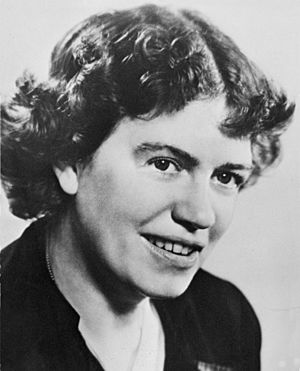
Margaret Mead, a well-known cultural anthropologist.
- Audrey Richards (1899–1984) was a British social anthropologist who focused on African societies. She studied the Bemba people of Zambia, looking at their food, economy, and how women lived. Her work was very important for understanding daily life in these communities.
- Mary Douglas (1921–2007) was a British anthropologist known for her work on culture, symbolism, and religion. She explored how societies create rules and meanings, especially around purity and danger.
Exploring Our Past: Archaeologists
Archaeologists dig up clues from the past to understand how people lived long ago.
- Kathleen Kenyon (1906–1978) was a British archaeologist who led important excavations in Jericho and Jerusalem. Her careful methods helped improve how archaeological digs were done.
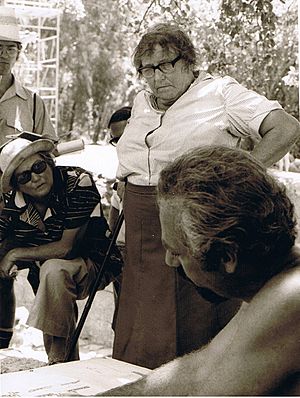
Kathleen Kenyon at an archaeological site.
- Marija Gimbutas (1921–1994) was a Lithuanian-American archaeologist. She was famous for her ideas about ancient European cultures, especially those from the Neolithic period, and her theories about goddess worship.
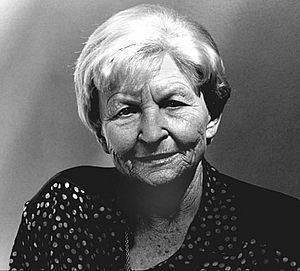
Marija Gimbutas, an archaeologist who studied ancient Europe.
- Mary Leakey (1913–1996) was a British paleoanthropologist who made incredible discoveries of early human fossils in East Africa. Her work, often with her husband Louis Leakey, helped us understand human evolution.
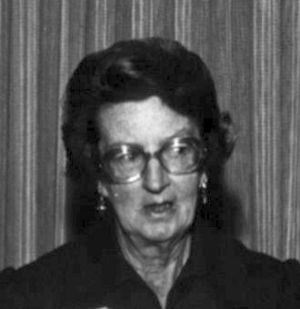
Mary Leakey, a famous paleoanthropologist.
- Sarah Parcak (born 1979) is an American archaeologist and Egyptologist who uses satellite images to find ancient sites. She's like a real-life Indiana Jones, but with satellites! Her work helps protect historical treasures from being lost or damaged.
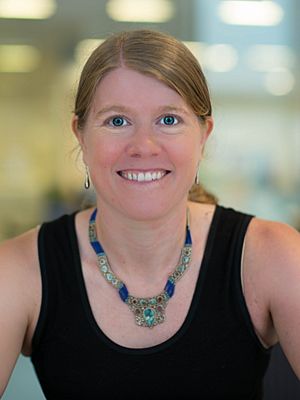
Sarah Parcak, who uses satellites to find ancient sites.
Studying Our Closest Relatives: Primatologists
Primatologists are anthropologists who study primates, like monkeys and apes, to learn more about our own origins and behavior.
- Dian Fossey (1932–1985) was an American zoologist who spent years studying mountain gorillas in Rwanda. Her dedication helped bring attention to the need to protect these amazing animals.
- Birutė Galdikas (born 1946) is a Canadian primatologist who has studied orangutans in Borneo for decades. She has worked tirelessly to protect these endangered apes and their rainforest homes.
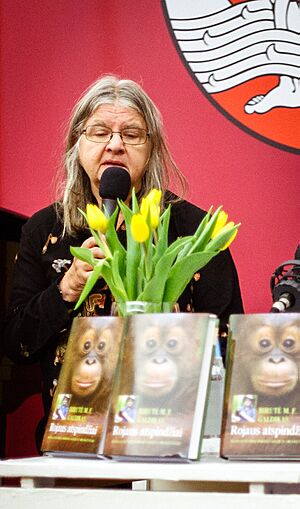
Birutė Galdikas, a primatologist studying orangutans.
- Jane Goodall (born 1934) is a world-renowned British primatologist. She is famous for her long-term study of chimpanzees in Tanzania, which changed how we understand these animals and their complex social lives.

Jane Goodall with a chimpanzee.
Modern Anthropologists and Their Work
Anthropology continues to be a vibrant field, with women contributing to many different areas.
- Alice Roberts (born 1973) is an English physical anthropologist, anatomist, and popular television presenter. She makes science exciting and easy to understand for everyone, often appearing in shows about human history and evolution.
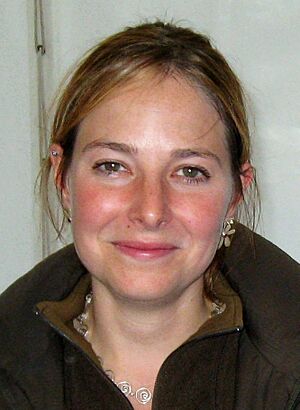
Alice Roberts, a physical anthropologist and TV presenter.
- Kathy Reichs (born 1948) is an American forensic anthropologist and writer. She uses her knowledge of human bones to help solve crimes, and she's also the author of the popular "Temperance Brennan" book series, which inspired the TV show "Bones."
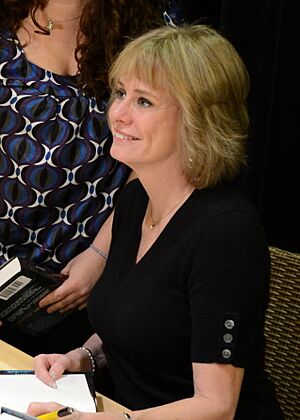
Kathy Reichs, a forensic anthropologist and author.
- Nina Jablonski (born 1953) is an American anthropologist and paleobiologist. She is known for her research on the evolution of human skin color, explaining how different skin tones developed as humans adapted to various environments around the world.
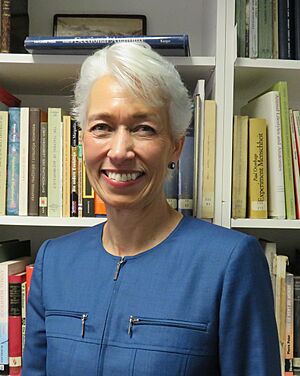
Nina Jablonski, who studies the evolution of skin color.
- Sue Black (born 1961) is a Scottish forensic anthropologist. She is an expert in identifying human remains, often working on complex criminal cases and humanitarian efforts to identify victims of disasters.
Images for kids
-
Alba Zaluar, a Brazilian anthropologist.
-
Ana María Groot, a Colombian historian and anthropologist.
-
Angana P. Chatterji, an Indian anthropologist and activist.
-
Anna Pujol Puigvehi, a Spanish archaeologist.
-
Annah Robinson Watson, an American author and folklorist.
-
Anne Chapman, an American anthropologist.
-
Anne Salmond, a New Zealand anthropologist.
-
Anne Stine Ingstad, a Norwegian archaeologist.
-
Cathrine Hasse, a Danish anthropologist.
-
Cezaria Jędrzejewiczowa, a Polish scientist and art historian.
-
Charlotte Booth, a British Egyptologist.
-
Charlotte Gower Chapman, an American ethnologist.
-
Charlotte Lewis, a fictional character.
-
Clarisa Hardy, a Chilean politician and anthropologist.
-
Claudia Roden, a British writer and anthropologist.
-
Clémence Royer, a French philosopher.
-
Daria Khaltourina, a Russian sociologist and anthropologist.
-
Dean Falk, an American anthropologist.
-
Débora Diniz, a Brazilian anthropologist.
-
Deborah Hyde, a British anthropologist.
-
Denise Schmandt-Besserat, a professor of art and archaeology.
-
Dorothea Bate, a Welsh palaeontologist.
-
Dorothea Bleek, a German anthropologist.
-
Edith Durham, a British artist and anthropologist.
-
Eilat Mazar, an Israeli archaeologist.
-
Elena Berezovich, a Russian linguist.
-
Eliane Karp, a Venezuelan anthropologist and former First Lady of Peru.
-
Elisabeth Krämer-Bannow, a German ethnologist.
-
Elizabeth Warnock Fernea, an American anthropologist.
-
Elsie Clews Parsons, an American anthropologist.
-
Eslanda Goode Robeson, an American anthropologist and activist.
-
Eugenie Scott, an American anthropologist.
-
Eugenie Sellers Strong, a British archaeologist.
-
Eva Justin, a German psychologist.
-
Éva Pócs, a Hungarian anthropologist.
-
Felicitas Goodman, an American linguist and anthropologist.
-
Fiona Caroline Graham, an Australian anthropologist.
-
France Martineau, a Canadian linguist.
-
France Winddance Twine, an American ethnographer.
-
Frances D'Souza, a British academic and anthropologist.
-
Frances Densmore, an American anthropologist.
-
Francine Saillant, a Canadian anthropologist.
-
Françoise Héritier, a French anthropologist.
-
Françoise Pommaret, a French Tibetologist.
-
Frederica de Laguna, an American ethnologist.
-
Fuambai Ahmadu, an American anthropologist.
-
Gabriella Coleman, an internet anthropologist.
-
Geraldine Finlayson, a Gibraltarian historian.
-
Gertrude Blom, a Swiss Mesoamericanist.
-
Gayle Rubin, an American cultural anthropologist.
-
Genevieve Bell, an Australian anthropologist.
-
Halet Çambel, a Turkish fencer and archaeologist.
-
Halleh Ghorashi, an anthropologist.
-
Hallgerður Gísladóttir, an ethnologist and poet.
-
Heather Horst, an American anthropologist.
-
Heleen Sancisi Weerdenburg, a Dutch archaeologist.
-
Helen Fisher, a Canadian anthropologist.
-
Hilde Frafjord Johnson, a Norwegian diplomat and anthropologist.
-
Hilma Granqvist, a Finnish anthropologist.
-
Honor Frost, an underwater archaeologist.
-
Ingrid Rüütel, an Estonian ethnologist.
-
Janet Bennion, an American anthropologist.
-
Joann Kealiinohomoku, an American anthropologist.
-
Jean Comaroff, an American anthropologist.
-
Johnnetta B. Cole, an American anthropologist.
-
Judith Berman, an American writer.
-
Karen Ramey Burns, a forensic anthropologist.
-
Karla Poewe, an American anthropologist.
-
Katherine Dunham, an American dancer and anthropologist.
-
Katherine Routledge, a British archaeologist.
-
Kathryn Woolard, an American linguistic anthropologist.
-
Kristen R. Ghodsee, an American ethnographer.
-
Kristina Killgrove, an American bioarchaeologist.
-
Lady Hester Stanhope, a British archaeologist.
-
Layla AbdelRahim, a Canadian anthropologist.
-
Leela Dube, an Indian anthropologist.
-
Lida Shaw King, an American classical scholar.
-
Lívia Járóka, a Hungarian politician and anthropologist.
-
Lucy Suchman, a British sociologist.
-
Luisa Accati, an Italian historian and anthropologist.
-
Lydia Cabrera, an Afro-Cuban poet and anthropologist.
-
Makaziwe Mandela, a South African anthropologist.
-
Makereti Papakura, a Māori ethnographer.
-
Marcela Lagarde, a Mexican anthropologist and activist.
-
Marcia C. Inhorn, an American medical anthropologist.
-
Marcia Theophilo, a Brazilian poet and anthropologist.
-
Margaret Lock, an anthropologist.
-
Margaret Murray, a British Egyptologist.
-
Maria Czaplicka, a Polish anthropologist.
-
Maria Reiche, a Peruvian archaeologist.
-
Marija Makarovič, a Slovenian ethnologist.
-
Marjan Mashkour, an Iranian archaeologist.
-
Marta Turok, a Mexican anthropologist.
-
Mary Catherine Bateson, an American anthropologist.
-
Mary Doria Russell, an American novelist and anthropologist.
-
Mary Hamilton Swindler, an archaeologist.
-
Mary-Russell Ferrell Colton, an American artist and anthropologist.
-
Matilda Coxe Stevenson, an ethnologist.
-
Meave Leakey, a Kenyan paleoanthropologist.
-
Mercedes Fernández-Martorell, a Spanish writer and anthropologist.
-
Mildred Trotter, an American anthropologist.
-
Minou Tavárez Mirabal, a Dominican anthropologist and politician.
-
Mizuko Ito, a Japanese cultural anthropologist.
-
Muazzez İlmiye Çığ, a Turkish Sumerologist.
-
Nancy Dupree, an American archaeologist.
-
Nancy Turner, a Canadian ethnobiologist.
-
Natalie Curtis, an American ethnomusicologist.
-
Niède Guidon, a Brazilian archaeologist.
-
Nina Gagen-Torn, a Russian writer and historian.
-
Olive Pink, an Australian anthropologist and activist.
-
Patricia Alice Shaw, a Canadian linguist.
-
Penny Wolin, an American photographer and anthropologist.
-
Regina Bendix, a Swiss academic.
-
Ruth Behar, a Jewish Cuban American writer and anthropologist.
-
Ruth Cardoso, a Brazilian anthropologist.
-
Ruth Landes, an American anthropologist.
-
Ruth Shady, a Peruvian anthropologist.
-
Ruth Underhill, an American anthropologist.
-
Sada Mire, a Somalian archaeologist.
-
Salima Ikram, a Pakistani Egyptologist.
-
Sandra Morgen, an American anthropologist.
-
Sara Yorke Stevenson, an American archaeologist.
-
Sarah Green, a social anthropologist.
-
Sarah Parcak, an American archaeologist.
-
Sidney Robertson Cowell, an American ethnographer.
-
Smadar Lavie, an Israeli anthropologist.
-
Suad Joseph, an American anthropologist.
-
Sue Savage-Rumbaugh, a psychologist.
-
Princess Sumaya bint Hassan, a Jordanian princess and anthropologist.
-
Susanne Schröter, a German anthropologist.
-
Suzanna W. Miles, an American Mayanist.
-
Svetlana Pletneva, a Russian historian and archaeologist.
-
Tatiana Proskouriakoff, an American Mayanist scholar.
-
Teresa Giménez Barbat, an anthropologist.
-
Tullia Magrini, an Italian anthropologist.
-
Uzma Z. Rizvi, an American anthropologist.
-
Véréna Paravel, a French anthropologist and artist.
-
Wendy Fonarow, an American anthropologist.
-
Winifred Brunton, a British artist and Egyptologist.
-
Zagorka Golubović, a Yugoslav/Serbian sociologist.
-
Zelia Nuttall, an American archaeologist.
-
Zora Neale Hurston, an American folklorist and novelist.
-
Zsófia Torma, a Hungarian archaeologist.
See also
Lists of women scientists Lists of women in STEM fields Lists of women by occupation




















